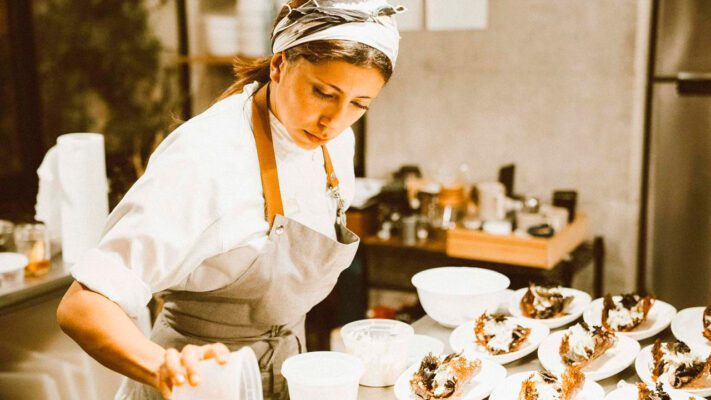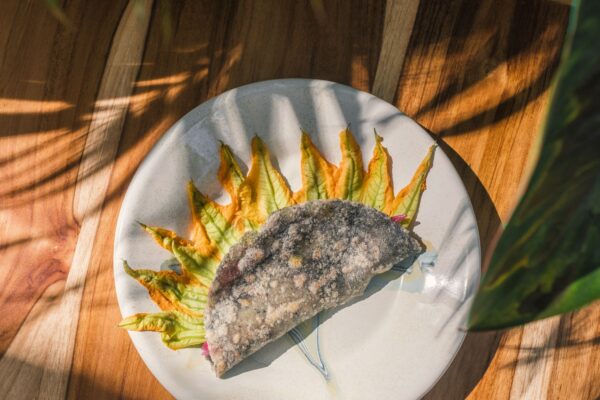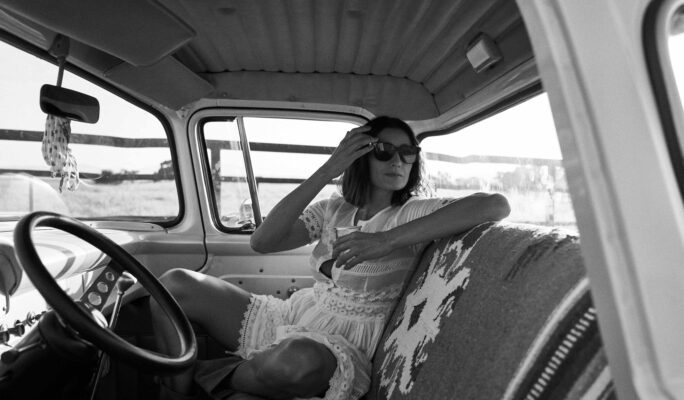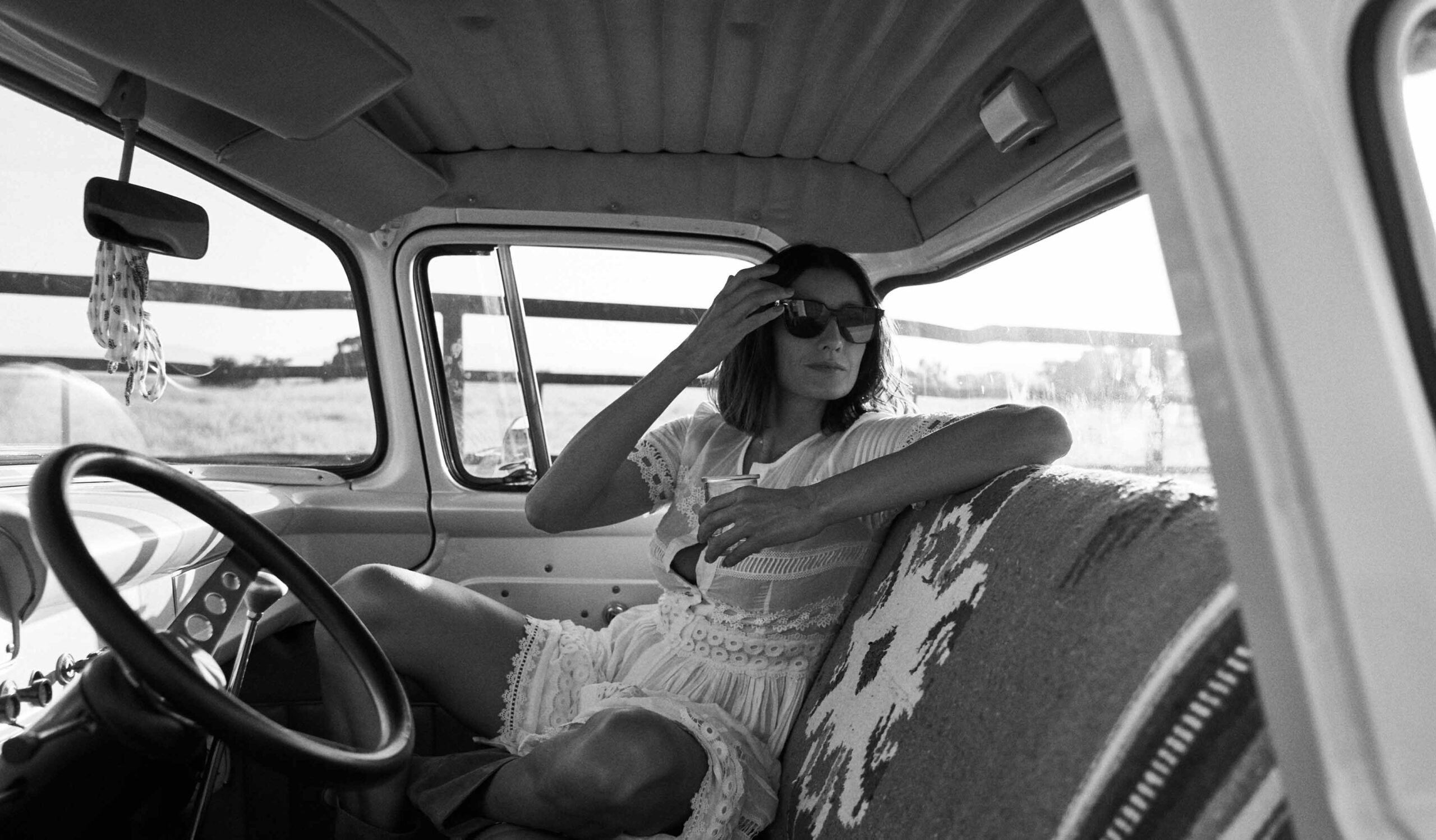
Photo by Brian Bowen Smith.
COFFEE WITH
MARIANA PADILLA: “THIS IS WHAT OUR LAND GAVE US AND THAT’S WHY WE FEEL SO PROUD”
Name: Mariana Padilla
Profession: Founder, Casa del Sol Tequila, Mapache and House of Cuca
Nationality: Mexican
Zodiac sign: Capricorn
Instagram: @marianapad
LATINNESS: Mariana, last time we were in contact, you were living in Guadalajara and starting out in the fashion industry. From there, you made an unexpected move to Tulum, where you’ve been based since. What inspired that move?
MARIANA: I was in Guadalajara and wanted to make my mark. Coming from a family of ceramists in Tlaquepaque, I thought that through ceramics I’d be able to start something of my own. Although I really liked fashion, I wasn’t sure how to integrate it.
I returned to Guadalajara after living in Los Angeles, and found myself with no projects nor a place to live. A trip to Tulum came up, and here, with a group of friends (Gael Deboise, Sara Galindo and Ricardo Korkowski), we set up Kilómetro 33 from scratch. I thought I’d stay for about three months to help set up everything, get the store running, and then I’d come back.
But, I loved life in Tulum– I felt very free. I was coming out of a separation, and here I experienced a very beautiful healing. I finally felt myself, and things began to flow for my personal projects, Mapache and House of Cuca with Gael Deboise. I was able to sell what I was making in these stores.
The Latin American boom began around this time. Tourists could find local designs, which was very difficult before, and so it was here in Tulum, where they began to appreciate what us locals were making– Latin Americans, Mexicans, all of us creatives who wanted to promote our culture. It was that movement that brought me here and kept me here.
LATINNESS: If you had launched your brand from Guadalajara or Mexico City, do you think it would’ve had the same success?
MARIANA: No, I really think there’s something here that gave me a different platform, that allowed my stuff to transcend. Perhaps in another place it wouldn’t have had that scope. It would’ve been just as beautiful, it would’ve been just as creative, but I feel like everything falls into place in one way or another.
Tulum gave me a platform to have more projects, to be more creative, to open myself up to that world.
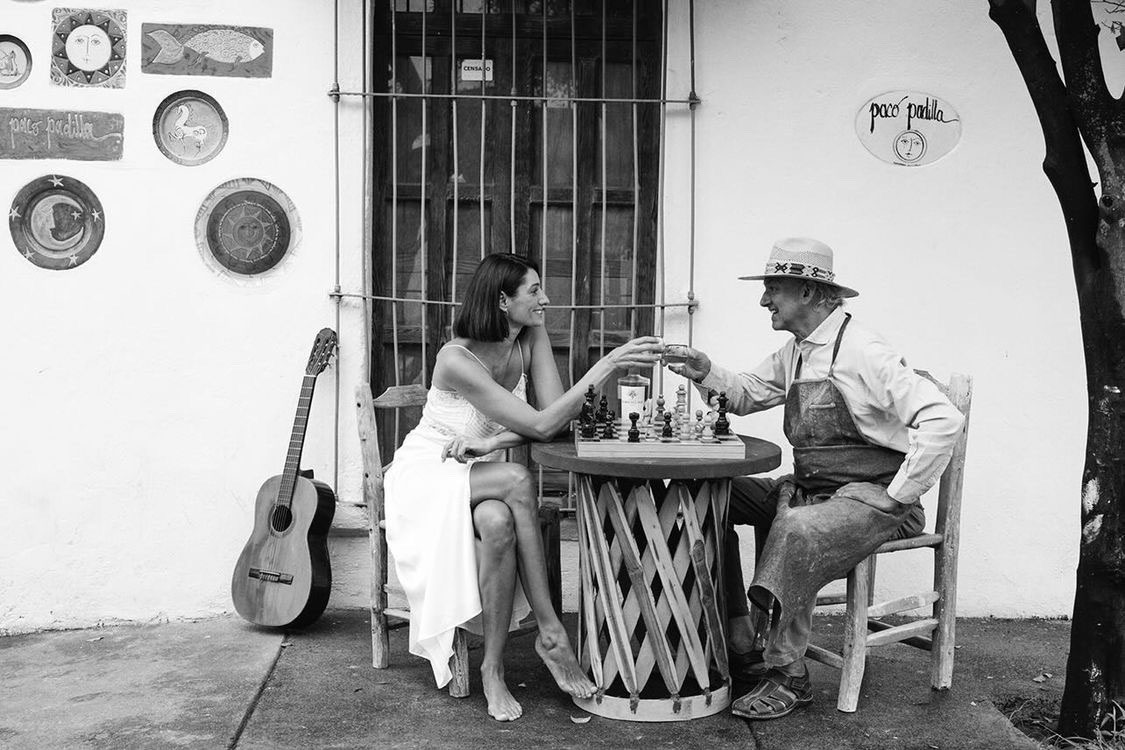
Photo by Brian Bowen Smith.
LATINNESS: Speaking about projects, you recently founded tequila brand Casa del Sol together with Eva Longoria and Alejandra Pelayo. How did this project come about?
MARIANA: This project is amazing because, like everything that’s happened in my life, I didn’t ask for nor imagine it. I’m 42 years old and the project came to me at 40, when I never thought I’d do something like this. And I’ve always believed it to be very magical because it comes from my father, Paco Padilla.
He’s a kind of cultural ambassador for Jalisco– he’s a singer-songwriter and potter. Since we’re from Tlaquepaque, we have a connection with ceramics, from my grandfather. He’s dedicated his life to singing and representing Mexico around the world through his voice and his ceramics. He travels everywhere, singing about Mexican culture and customs.
He’s met a lot of people throughout these years of following his passion. Coincidentally, most of my dad’s classmates in chemical engineering school are tequila masters, some of the most important in Mexico. So, it was that mixture of culture and people you meet along the way that began to give life to the project.
Through mutual friends, Steph, our CEO met my father and asked him, “Do you know any women related to fashion or design?” And he replied “My daughter.” The goal was to make what seemed like a small project become the best tequila of our time.
I feel like the new generation is trying to make a mark that our parents left behind. My part, especially thanks to what he bequeathed to me, is to represent Mexican culture, authenticity.
Alejandra is my cousin, and she’s worked in the tequila industry for many years. They also met her by coincidence. This is how the group was put together, very naturally.
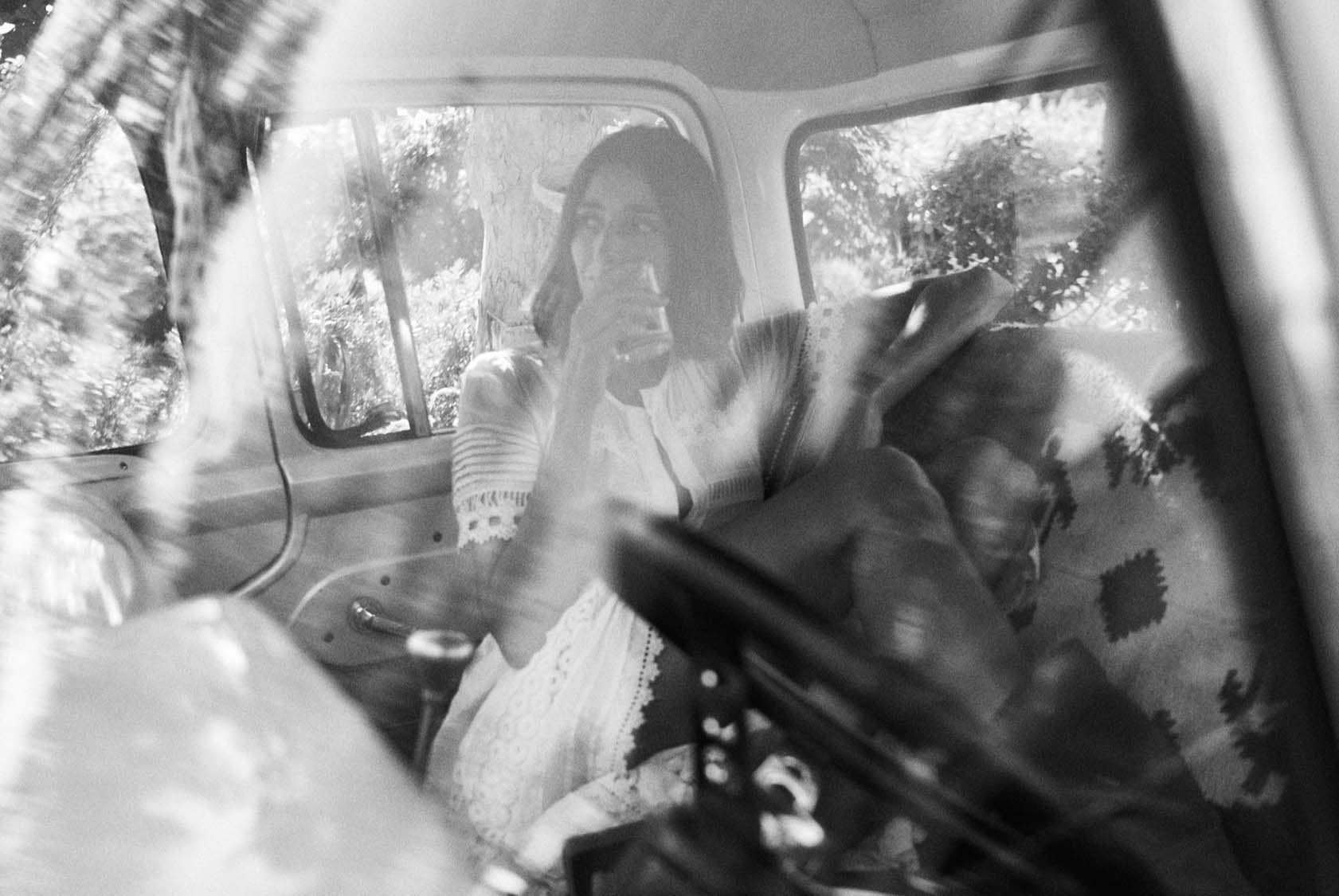
Photo by Brian Bowen Smith.
LATINNESS: What has this project meant to you?
MARIANA: It’s been a challenge because the world of tequila is a monster, because of everything going on with marketing and social media in the United States. I mean, you know how the gringos are: sell, sell, sell.
The biggest challenge has been to maintain what it represents, not to forget where it comes from, the roots, so that they can really see our culture. That’s my part.
As Mexicans, we have that commitment. My cousin Ale is in charge of all the production at the distillery. There’s also Carmen Gonzalez, who is the tequila master, and Colbi, who is our president. And of course Eva, who as a Mexican-American, has been a huge inspiration for us.
The truth is, I didn’t know her before this project and she’s left a mark on me. She’s a superwoman in every aspect. I don’t know how she manages to do so much, be so put together, and always be so lively. She has projects all day and is a mom and wife. Her love for Mexico is very grand– she feels super proud to come to Tlaquepaque, to meet my father. She’s been very involved in this project. For me it’s beautiful that people appreciate the things that we create and to be able to enter another platform where I didn’t think I could be.
LATINNESS: Speaking of empowering women, what’s the world of tequila like? Is it common to meet female tequila masters?
MARIANA: No, no, this is a revolutionary thing. The tequila industry has always been masculine, especially at the top. Women are generally at the bottom– they’re the ones who bottle, quality control, put the caps or the labels on. For women to take the top positions is very difficult.
At Casa del Sol we have Alejandra, who’s worked for ten years in the tequila industry, it’s what she studied. Then Carmen, our tequila master. Colleagues in other jobs and industries can’t believe we hold these positions.
The other day we were talking about impostor syndrome and how hard it is to arrive at a point where they make you doubt if you deserve it or not, if it was luck or happenstance. In reality, you realize that women can cover many things, from sticking a label on, because we are careful and do everything with a lot of love, worrying about those who are by our side. There’s a camaraderie between women. Time will prove that we can have these positions and make the best tequila.
Doors are often closed to us. That’s why it’s so important to be one of the first brands of tequila made by women. I know there are more, there are many women, but we need to shout it out, right? To give everyone a little voice and hope. Things are going to change.
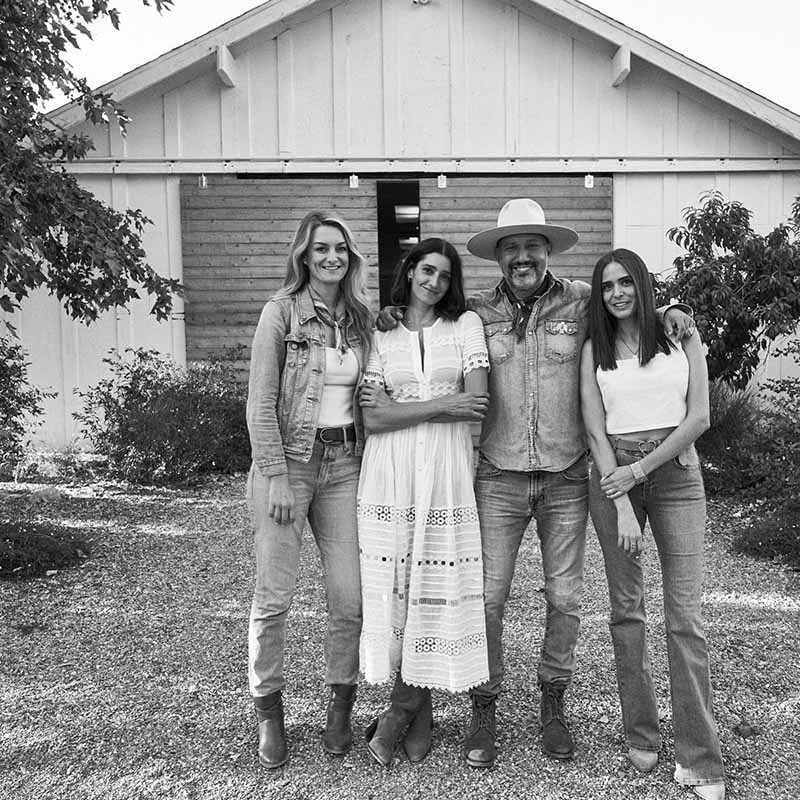
Photos by Brian Bowen Smith.
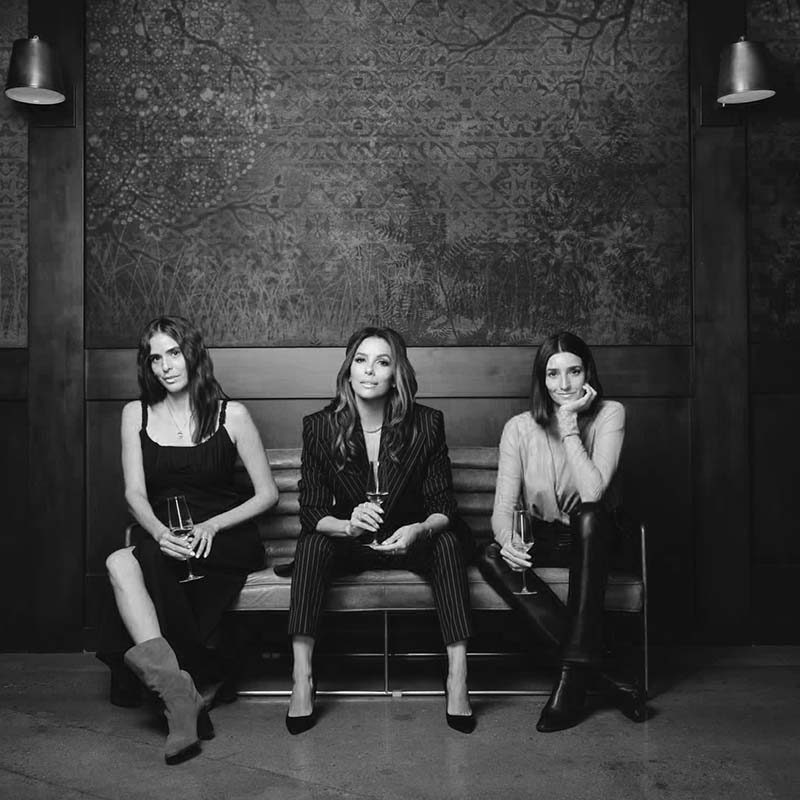
LATINNESS: In Mexico tequila is something you grow up with at home. What was your first memory with tequila?
MARIANA: Yes, it’s something very cultural and beautiful. I remember when I was little my dad would insist: “Try it, try it”. In my family, it was beautiful. I think the artisanal aspect influenced this a lot, because my dad would emphasize: “Try it, it’s a plant, it comes from the earth… It’s something magical. It’s something that the land, this land of Jalisco, gives us.”
It’s something you learn to love as you grow. It’s like when you taste a beer— at first it tastes horrible. When you learn to love tequila, you think, “How cool is it that we’re drinking something our land has put so much love into.” Also, to the economy of Mexico in general.
At the end of the day, this is what our land gave us and that’s why all Mexicans feel so proud to drink tequila.
In our case, Casa del Sol has something that the American public loves— it’s a very smooth tequila. In fact, many women who normally make faces when trying a tequila, feel differently when they drink this one. They’re reaction is more like, “Oh, this is so good.” They think it’s going to burn, but it doesn’t and they feel so cool ordering their tequila straight, you know? That’s what’s so great, that others can experience this and really enjoy it.
LATINNESS: People love Mexico, and every year it grows in popularity as a tourist destination. Is there something you think people still don’t know about your country?
MARIANA: Tlaquepaque is the best. It’s like a diamond in the rough, an undiscovered gem. It’s a beautiful little town located in Jalisco, along the road from the airport to Guadalajara. I lived there for a good part of my life, I grew up there, and I’m sure there are a thousand more places like Tlaquepaque, but for me, it’s the best kept secret.
I tell everyone, “You have to come, stay at my house, go to my father’s, my brother’s and my uncles’ workshops, and go to the market.” Dinners are delicious, the center is full of shops and super authentic, and that’s the new trend— looking for the most authentic, the hidden, where no one has ever gone.
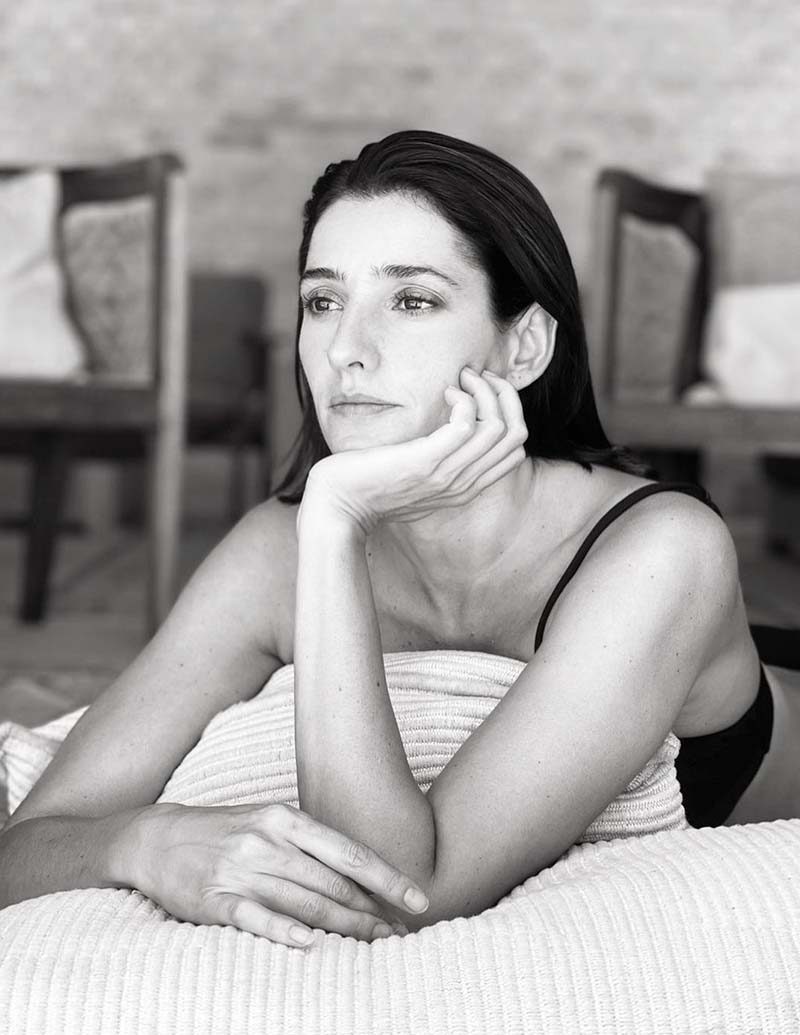
Photos by Brian Bowen Smith.
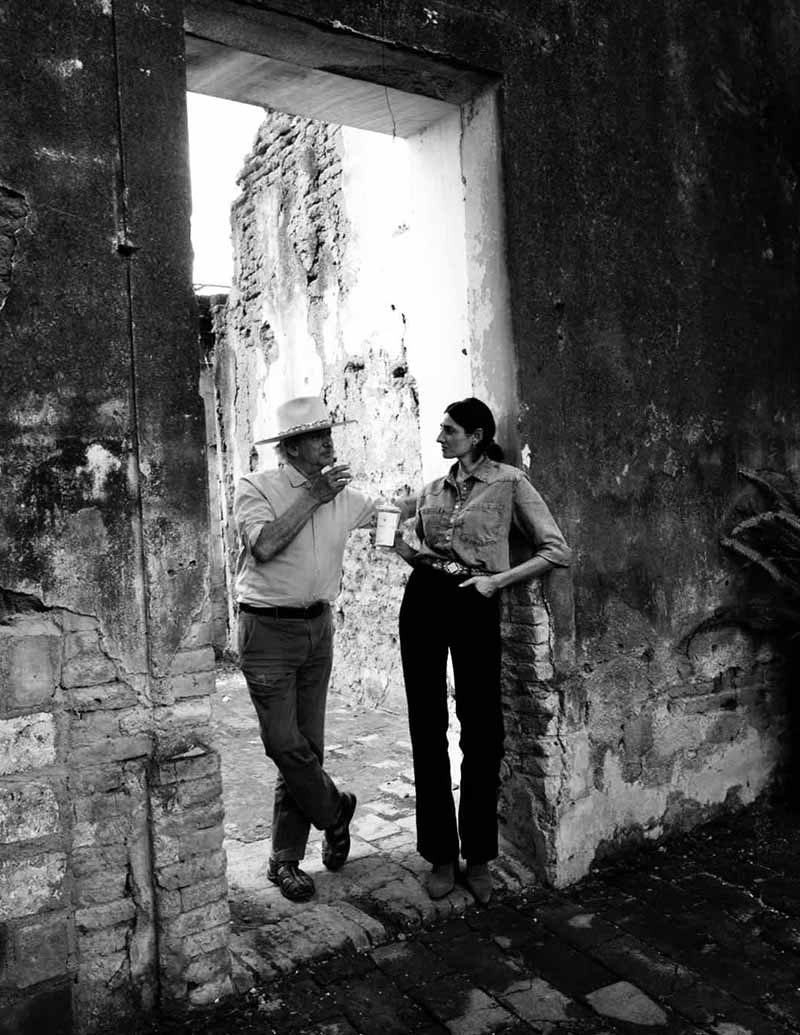
LATINNESS: Where do you see yourself in ten years?
MARIANA: The truth is, my life has changed so suddenly that I’m sure whatever I think is going to happen, probably will turn out differently. Tulum has grown a lot, it’s been transformed. I hardly go out or to tourist places anymore.
Perhaps at some point I’d like to return to Tlaquepaque. I’ve always been on the move. I’ve lived in many different places, and suddenly I get that rush that says: What next?
As far as family, children, I’m still unclear. I don’t know if I really want it. I haven’t decided yet, I’m leaving it up to fate.
LATINNESS: It’s always been that way for you…
MARIANA: Yes, everything has been very surprising. I’ve always felt blessed and very lucky. I think very nice things have happened to me, and I hope they continue to happen; that I can continue to communicate positive messages for women, about our culture and with our artisans.

